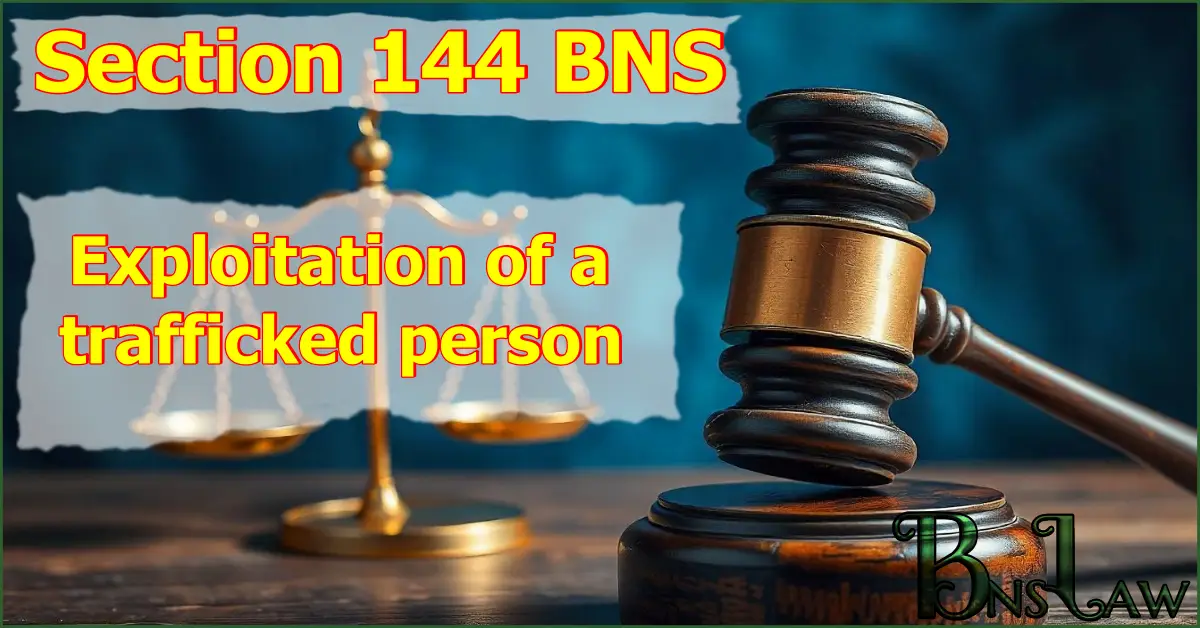Section 144 BNS | BNS 144
144(1) BNS
Whoever, knowingly or having reason to believe that a child has been trafficked, engages such child for sexual exploitation in any manner, shall be punished with rigorous imprisonment for a term which shall not be less than five years, but which may extend to ten years, and shall also be liable to fine.
144(2) BNS
Whoever, knowingly or having reason to believe that a person has been trafficked, engages such person for sexual exploitation in any manner, shall be punished with rigorous imprisonment for a term which shall not be less than three years, but which may extend to seven years, and shall also be liable to fine.
READ OTHER SECTIONS OF CHAPTER VI — OF OFFENCES AFFECTING THE HUMAN BODY
FAQs of BNS Section 144
-
144 BNS punishment and fine
Punishment and fine under Section 144 of the BNS—
144(1): Rigorous imprisonment for not less than 5 years but which may extend to 10 years and fine.
144(2): Rigorous imprisonment for not less than 3 years but which may extend to 7 years and fine. -
144 BNS cognizable or not
The offence under Section 144(1) and 144(2) of the BNS is cognizable.
-
144 BNS bailable or not
The offence under Section 144(1) and 144(2) of the BNS is non-bailable.
-
144 BNS trial court
Offence specified in Section 144(1) and 144(2) of the BNS is triable by the Court of Session.
Important Points
- Cognizable Offences: These are offences where a police officer can arrest a person without a warrant.
- Non-Cognizable Offences: These are offences where a police officer cannot arrest a person without a warrant.
- Bailable Offences: These are offences where the accused can get bail from the police station itself. All bailable offences are listed in the First Schedule of the Bharatiya Nagarik Suraksha Sanhita (BNSS).
- Non-Bailable Offences: Offences in which bail is not granted directly from the police station but after hearing the case in the court, the judge decides when bail will be granted. All non-bailable offences are listed in the first schedule of the Bharatiya Nagarik Suraksha Sanhita (BNSS).
- In the above FAQ, “trial court” means the court that has jurisdiction to try the offence.
- In the above FAQ, the expression “Magistrate of the first class” and “Any Magistrate” does not include Executive Magistrates.
Read other Sections of the BNS
Reference Link: New Criminal Laws (BNS), Ministry of Home Affairs







